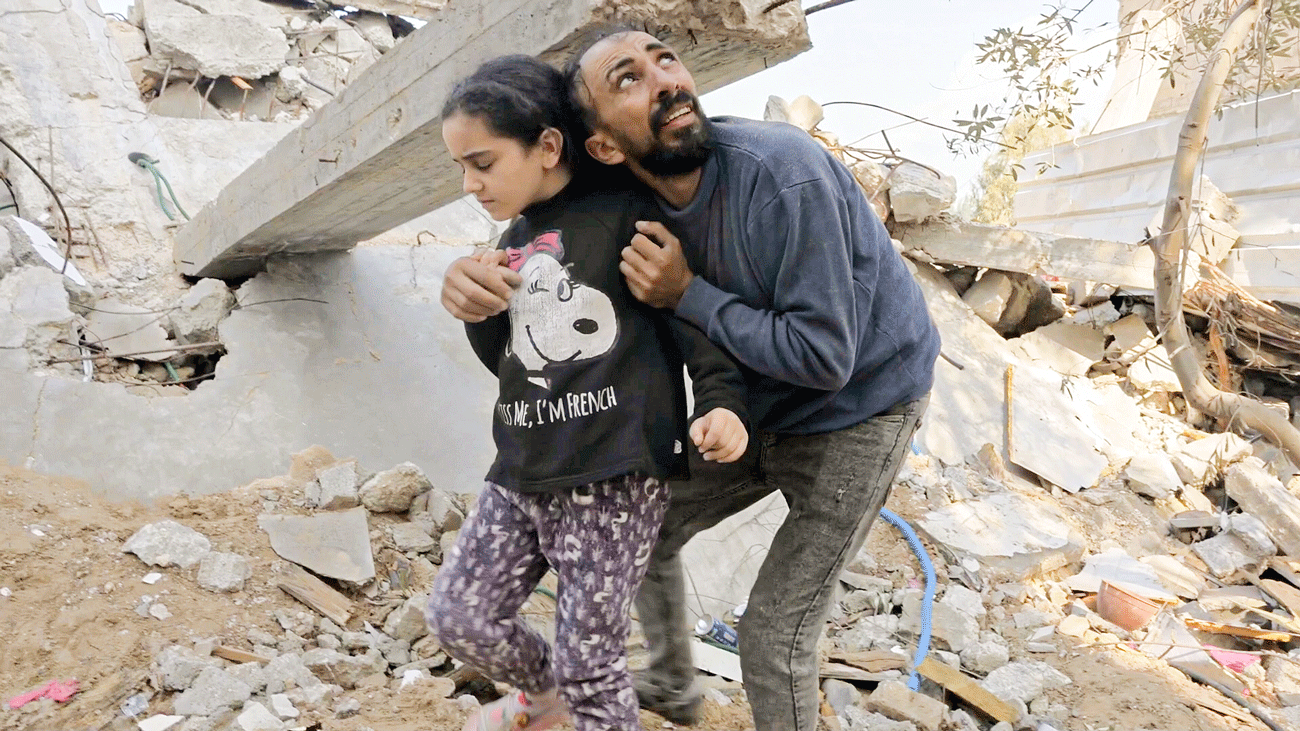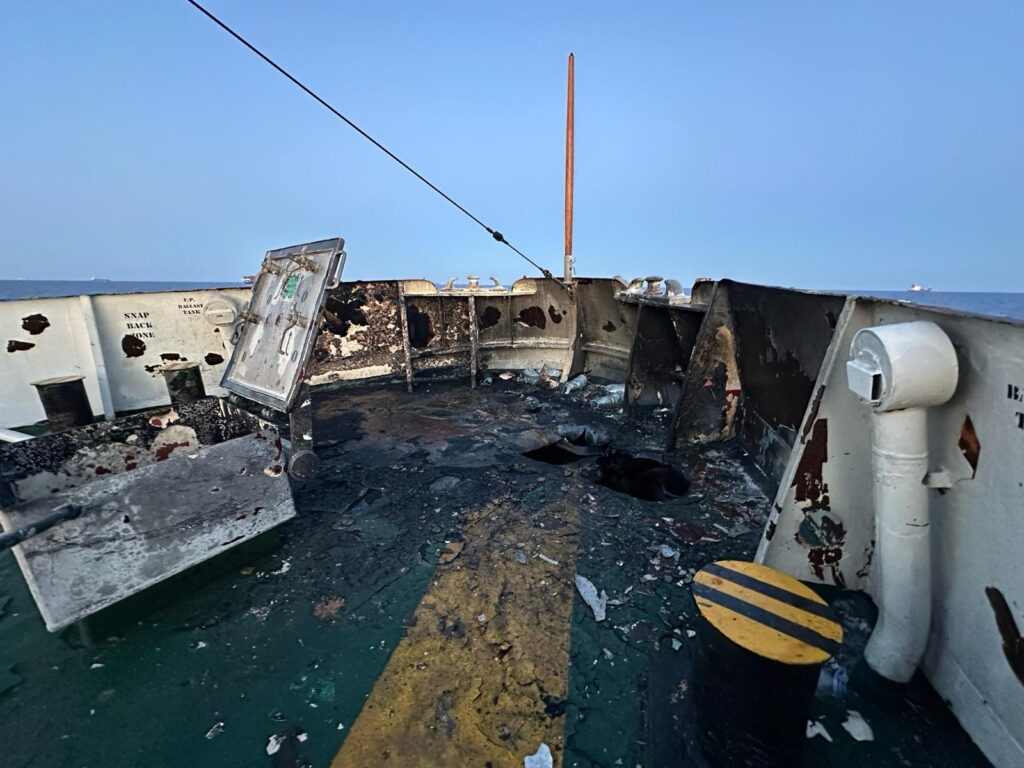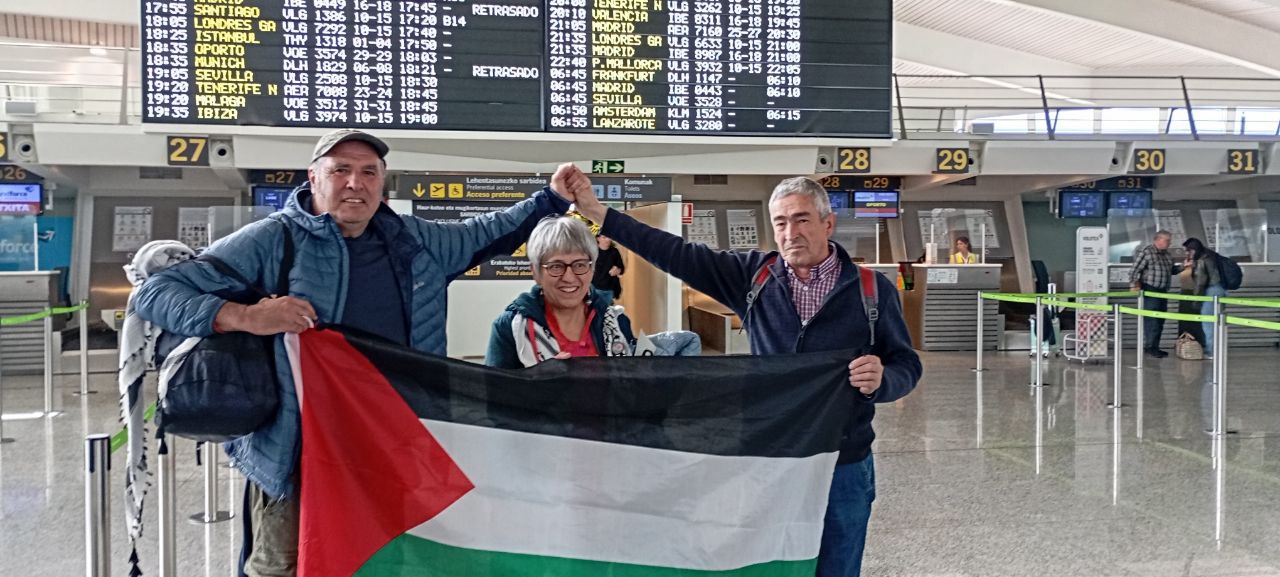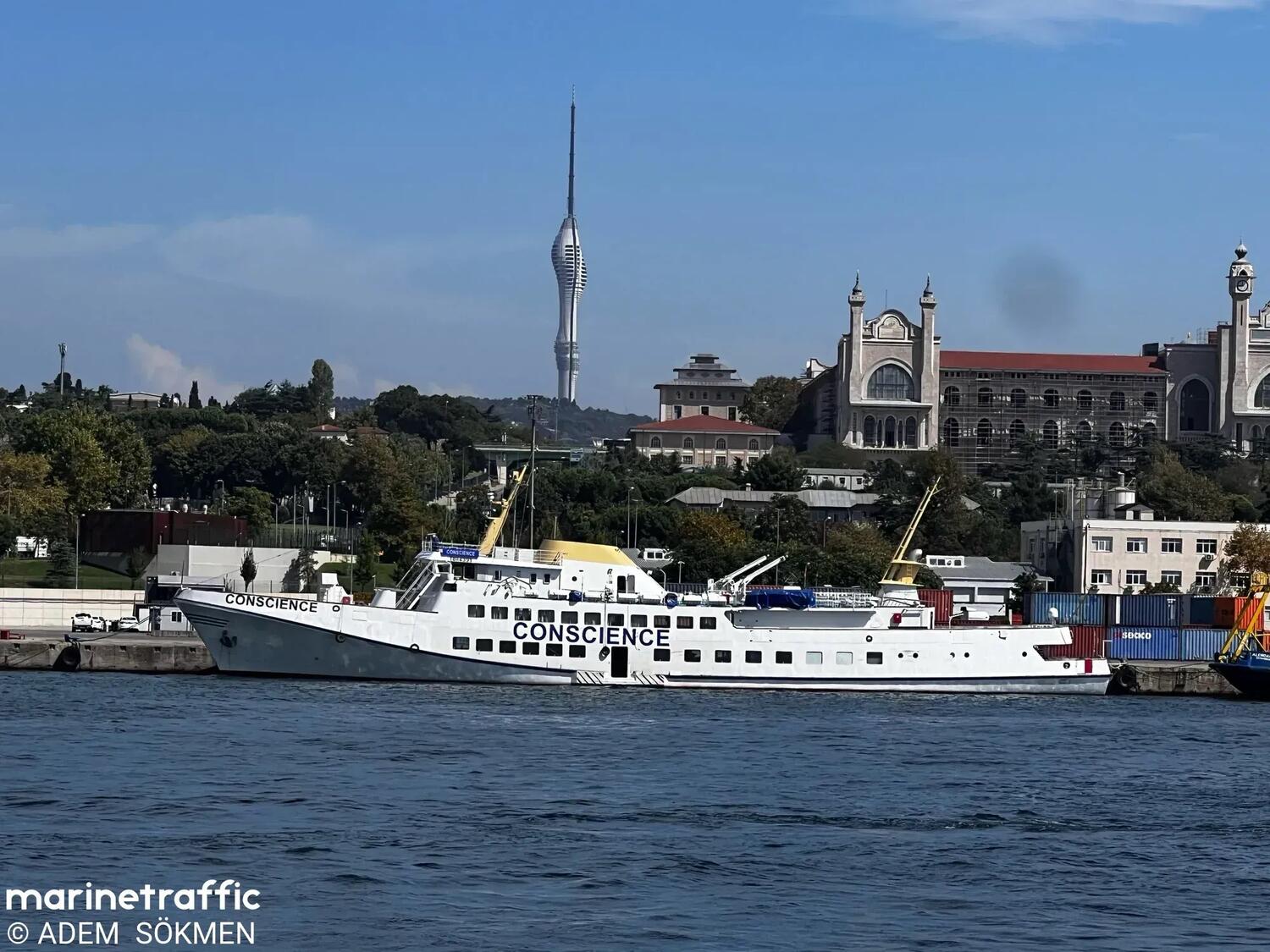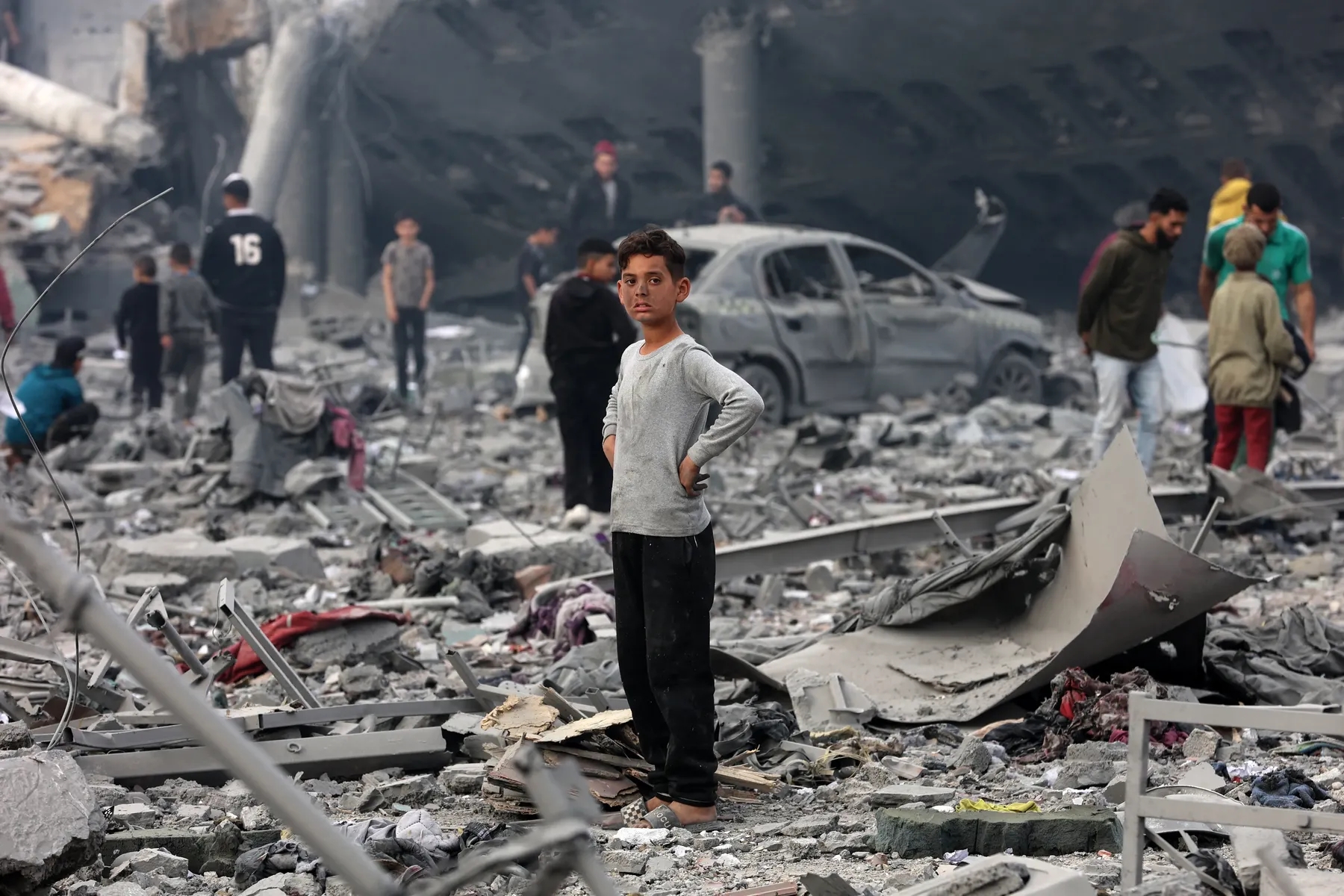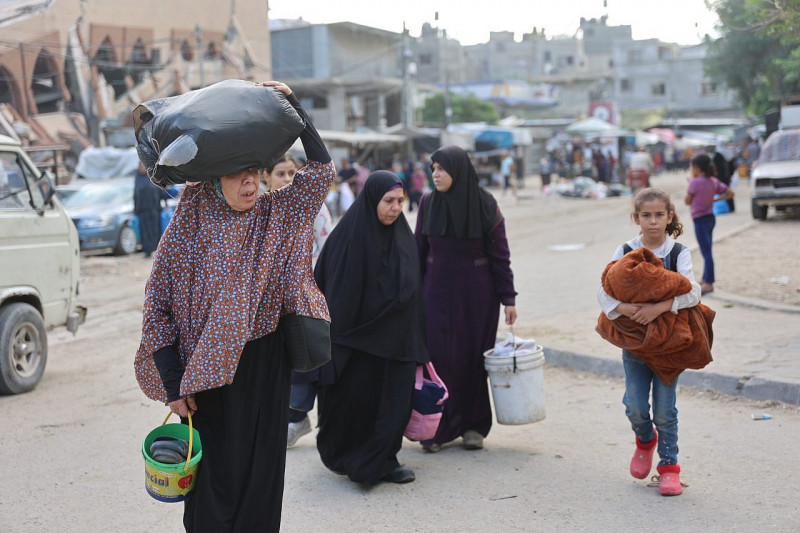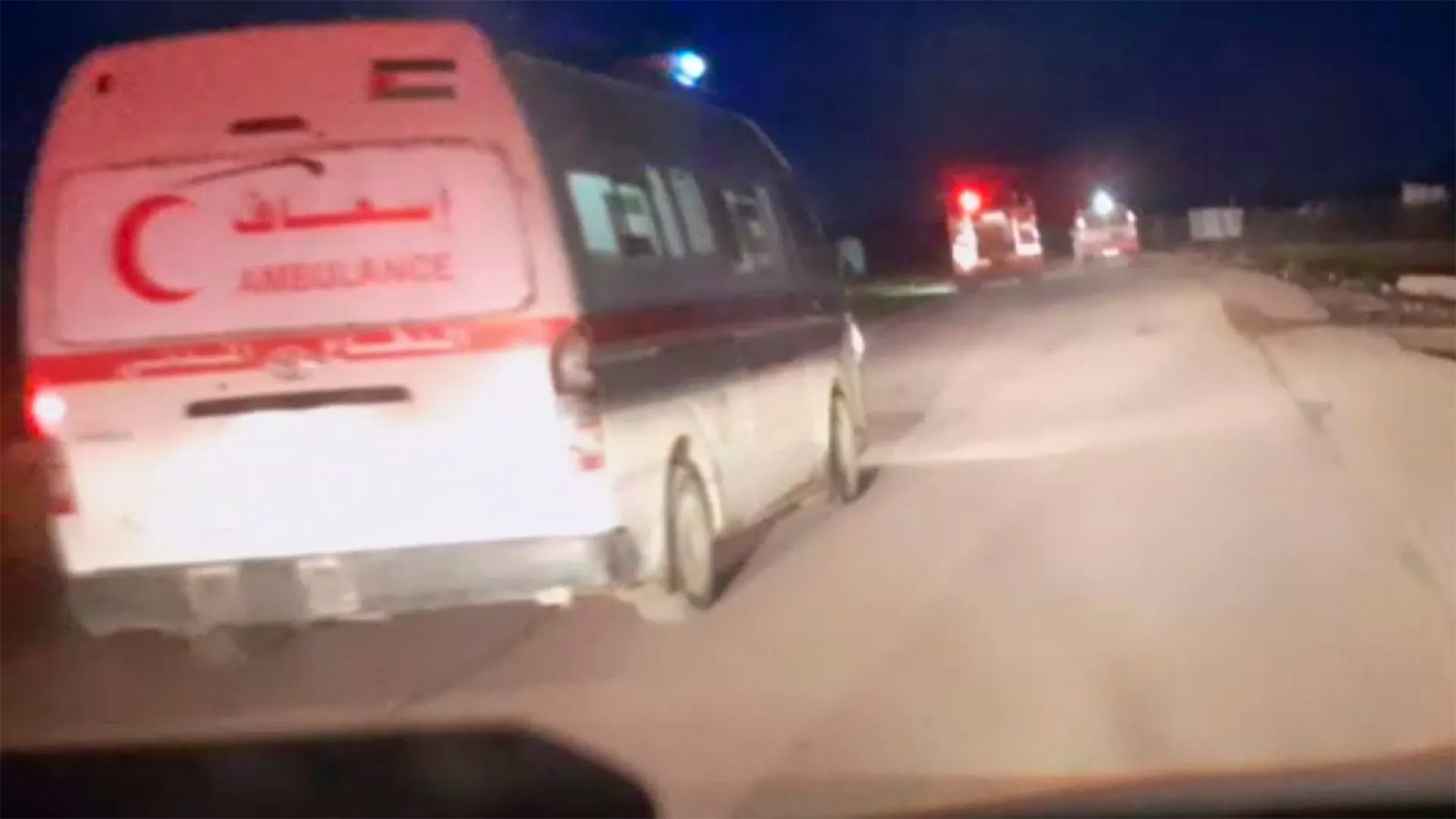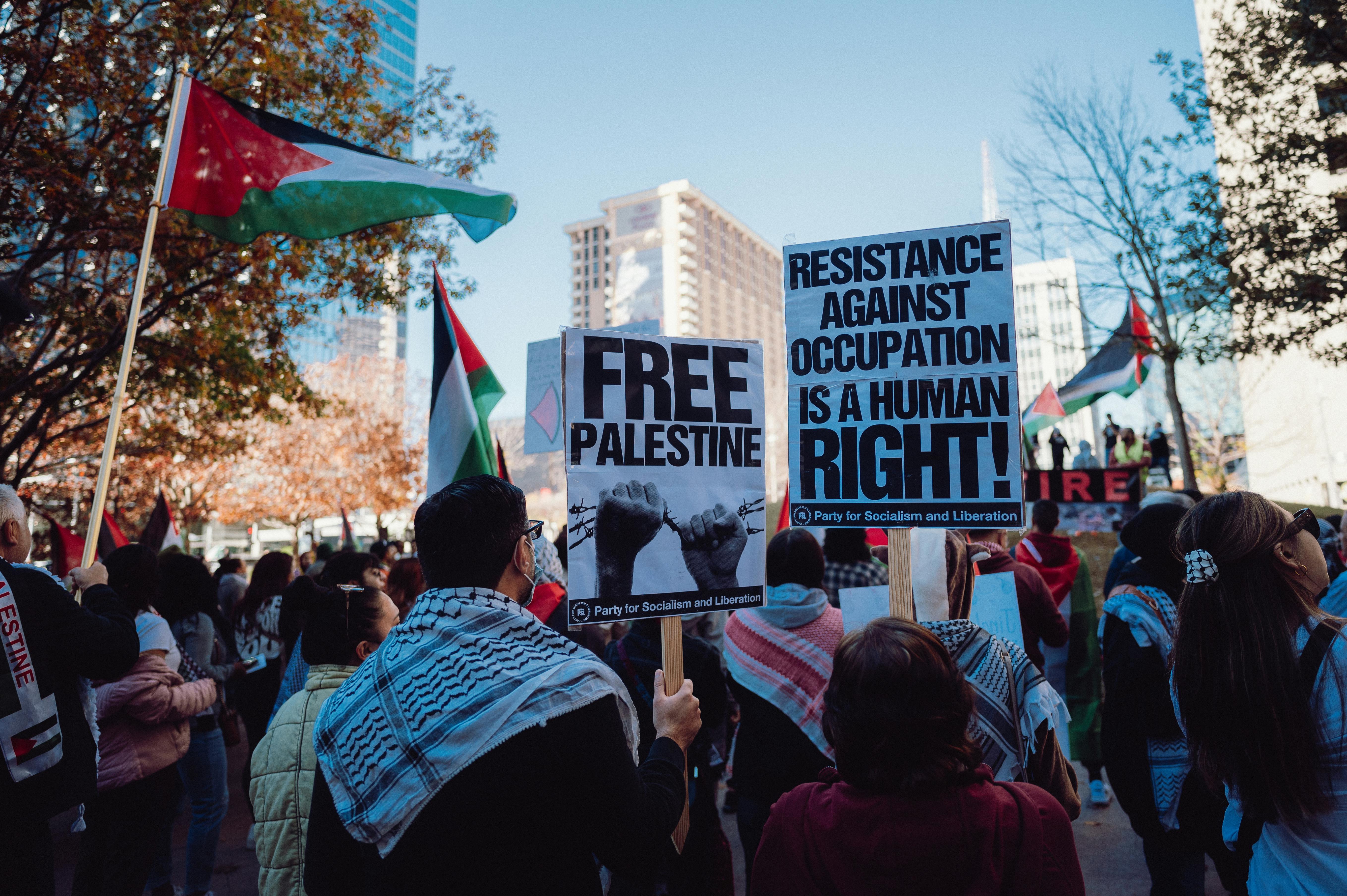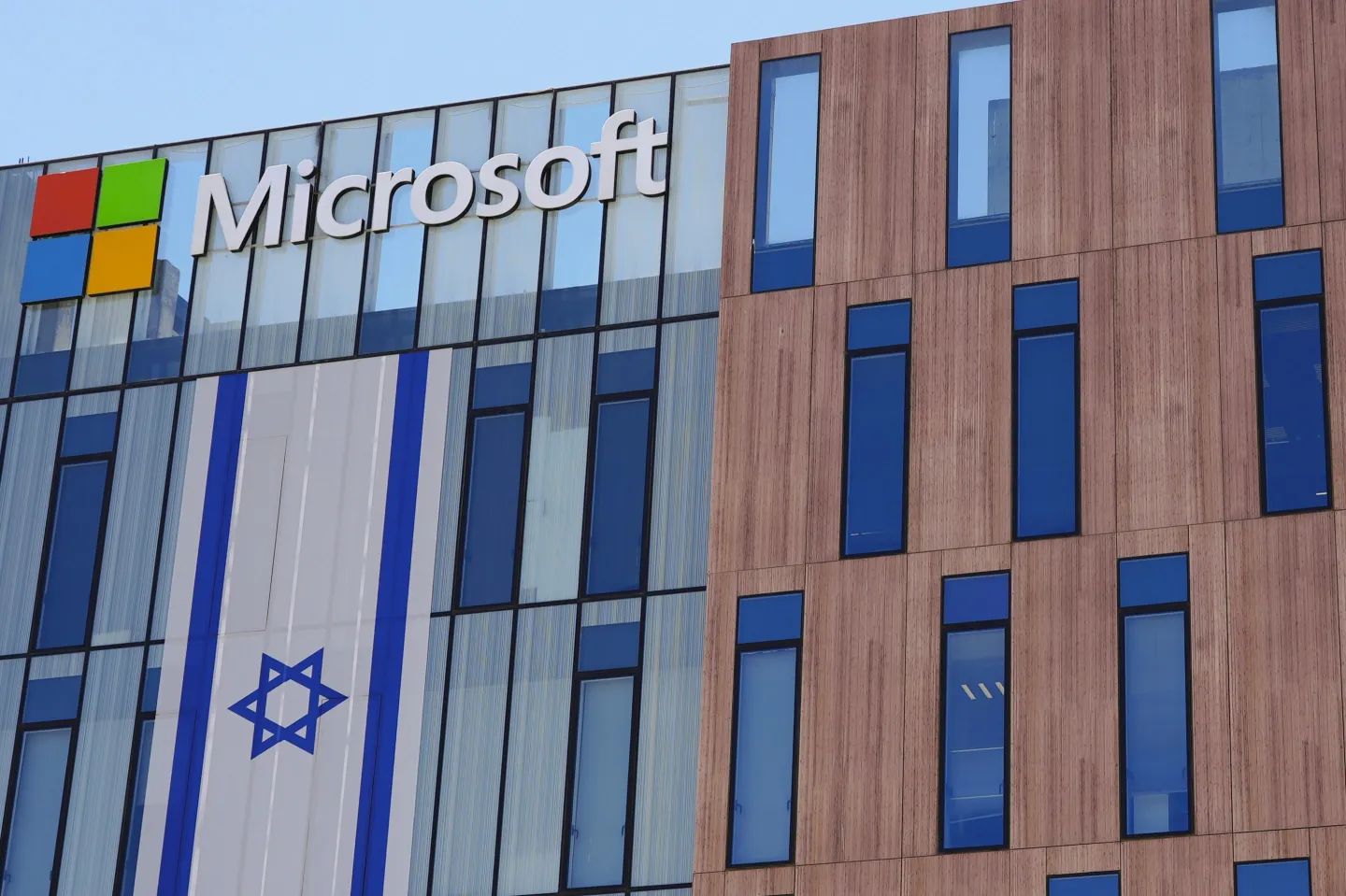Olive trees remain standing
- The Israeli Government is concerned about the situation in the country. This is how he referred to the campaign of Boikot, Divestment and Punishment led by the Palestinians in the Gaza Strip. Baptized with the acronym BDS, authorities have recognized that it grows “exponentially” around the world. A sign of this is the space that the main international media have offered it in recent times. Last June, the Israeli Prime Minister, Benjamin Netanyahu, gave the Ministry of Strategic Affairs the mission of dealing with this campaign. “As Gandhi said, they will first fascinate you, then they will laugh at you, then they will fight you, then you will win. And we are going to win.” The founders of the campaign say he's in the Ramallah office.
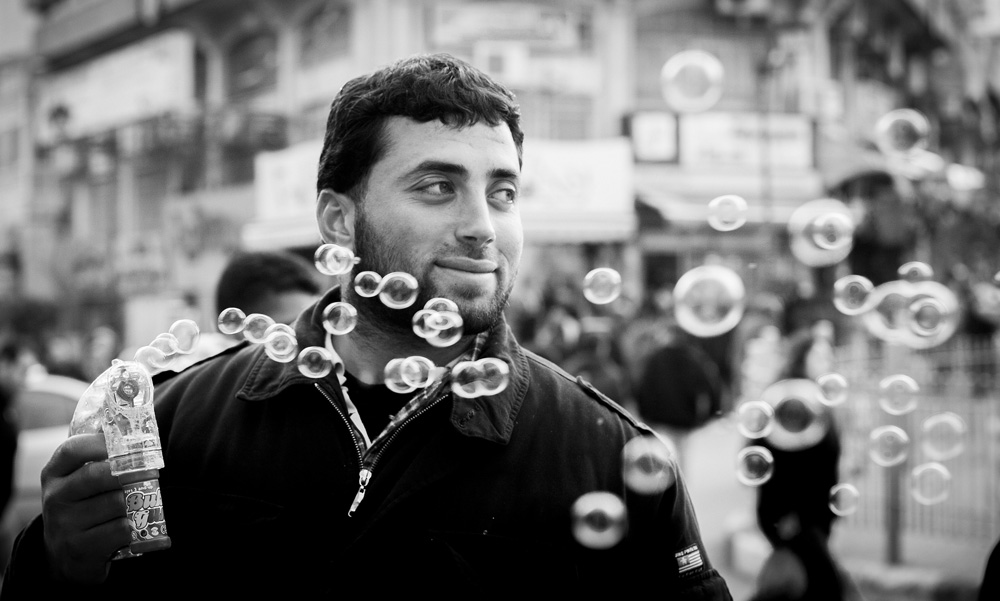
The report has as its axis a 9 day trip carried out by a cultural representation of the Basque Country. The exchange was made possible thanks to the collaboration of the Provincial Council of Bizkaia and the City Hall of Donostia-San Sebastián and has had the collaboration of the associations Paz y Dh, Biladi and Sodepaz Navarra. It is a question of raising the awareness of the Palestinian population in the field of culture.
The UN has proclaimed 2014 as the Year of Solidarity with Palestine, which is being celebrated in Palestine. 66 years after the founding of the State of Israel, life on this land of olive trees is hard.
The citizens of both sides believe that the peace negotiations between the Israeli Government and the Palestinian Authority are going to solve little, as issues that they regard as essential, such as the right of return of refugees, are left out of the agenda. We have tried to delve into the vision of the world of this country that understands its mere existence as the basis of resistance, pointing out to the reader from the beginning that the result will be no more than one among thousands of samples. At a time when major media outlets are reporting a lot of news and little information, Larrun's goal has been to sew and contextualize what popular movements and individuals fighting the occupation have transmitted. As it is a long report, we recommend that it be printed, or if not, you have the PDF format at your disposal, although we have put fewer photos.
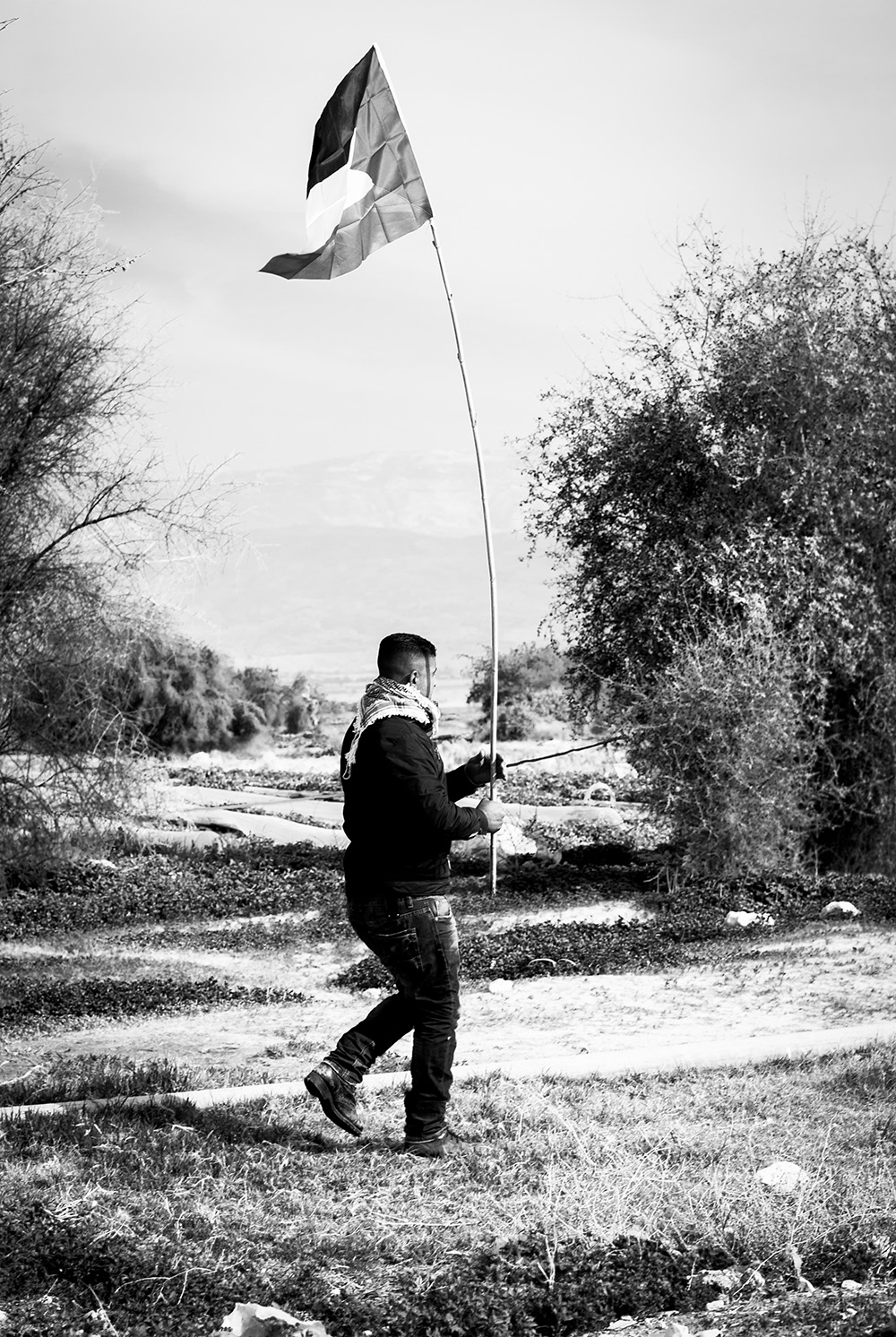
"Big Bang will be at 14:00 hours," said the Palestinian activist, who has hung the phone of the network. They will go to a people that Israel destroyed in 1948 when it expelled its inhabitants to try to revive them. They are forbidden to do so, and when the military police arrive they will keep it through peaceful means. Agents are expected to use tear gas and plastic bullets, as they have done with peaceful protests in recent months. One day earlier the last camp had been evicted, after a hundred people remained in the same place for six days. In twelve hours they have already prepared the following activity. And when you throw them out, you choose another area and you do it again.
It is located in a town on the outskirts of Jericho, east of Palestine, where the desert ends and the palm plantations of Israel begin. Jesus stayed there 40 days and 40 nights off, according to the world’s best-selling book. The activist, named Fathy Khdirat, is finalizing the details of the film that the DJ has released. In half an hour, he's been called a dozen times, as cars lift clouds of dust. He says he has come with a thick coat, ready to spend the night under the stars.
“Palestinian peaceful activists are rebuilding a people in the Jordan Valley. Come.” The SMS that will be sent to about 40 people is ready in the drafts, written in English and Arabic, indicating the exact place. It will send it once it has entered the field, because it thinks that Israel controls all the communications it has. He's glued the "Exist is to resist" sticker where only the missed looks will find.
As if they were the protagonists of the films, they will enter the cars and go to the agreed place, through the administration that controls Israel, understanding with gestures. The area has been delimited by fabric tapes, accompanied by the friendly look of a group of young pastors. It is a rocky terrain, along the road, surrounded by trees, sand and fenced infrastructure with which Israel draws water from the subsoil. By putting their flags in the wind, they will prove that they are alive.
The Palestinian media also highlights the fact that the group from Euskal Herria has given them a hand. You notice tension. The Israeli military police have appeared for ten minutes in three jeeps and with bulbs in the hand on several occasions. Time to start thinking about the next occupation. Over the years, they want to motivate active resistance to the citizens who have become insane by despair, sowing the conditions of the third Intifada or popular uprising.
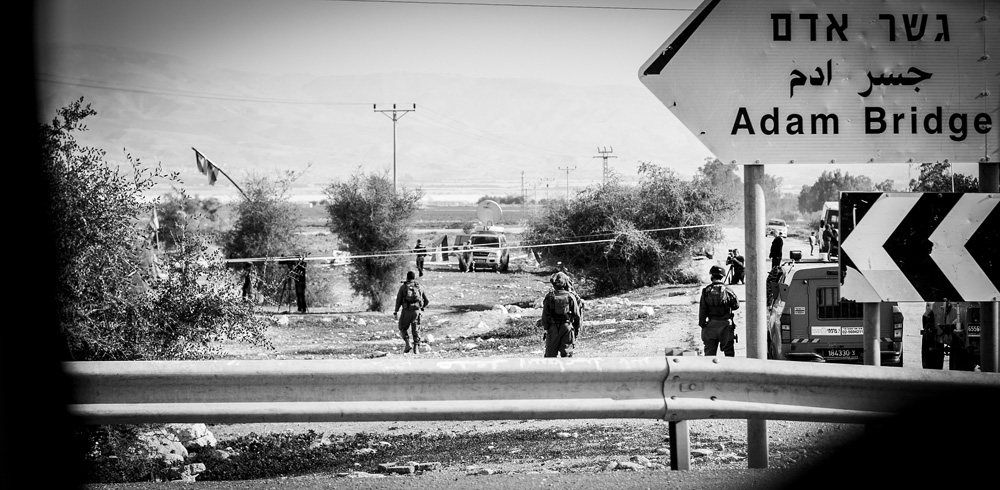
A people controlled by military
The Oslo agreements signed 20 years ago opened a period of frustration for the Palestinians and the Palestinians. The Israeli Prime Minister, Isaac Rabin, and the Chairman of the Palestine Liberation Organization, Yasser Arafat, could be seen squeezing their hands, and then the Israelis have seen Israel intensifying colonial expansion and occupation policies beyond their own Palestinian State. The UN, like many others, uses the term “Occupied Palestinian Territories” to refer to the West Bank, the Gaza Line and Jerusalem.
As a result of these agreements, the West Bank was divided into zones A, B and C. In A, 55 per cent of the country ' s Palestinians reside, in an area covering 18 per cent of the territory, in the administration managed by the Palestinian Authority. There are cities such as Ramallah, Nablus, Jericho or Bethlehem. Zone B occupies 21 per cent of the territory and is home to 40 per cent of the Palestinians, and they share management with the Israelis, at least on paper. And finally, in addition to the rest of the territory of historic Palestine, the Israeli Government has under its control 61% of the West Bank. Jerusalem was separated, both claimed, but Israel controls the capital. The Palestinians live in eastern Jerusalem, in eastern Gaza, without permission to cross the other side by separating walls.
“While peace is being negotiated, the actions of the Israeli government greatly hinder the lives of the Palestinians and threaten the possibilities for settlement,” said the director of the Oxfam office in the country. “Despite the fact that a peace process requires concessions on both sides, Palestinian civilians have paid a very high price.”
Many Palestinians think that the fragmentation of the areas was a big mistake, as in zone C are the main agricultural plots, an aquifer that generates 80 per cent of the water and the border with Jordan under Israeli control. They say that the fact that soldiers are not seen so clearly in areas A and B has made the occupation invisible, at least for many citizens who do not come to the walls.
The Qalqiliy, the first victims of the wall
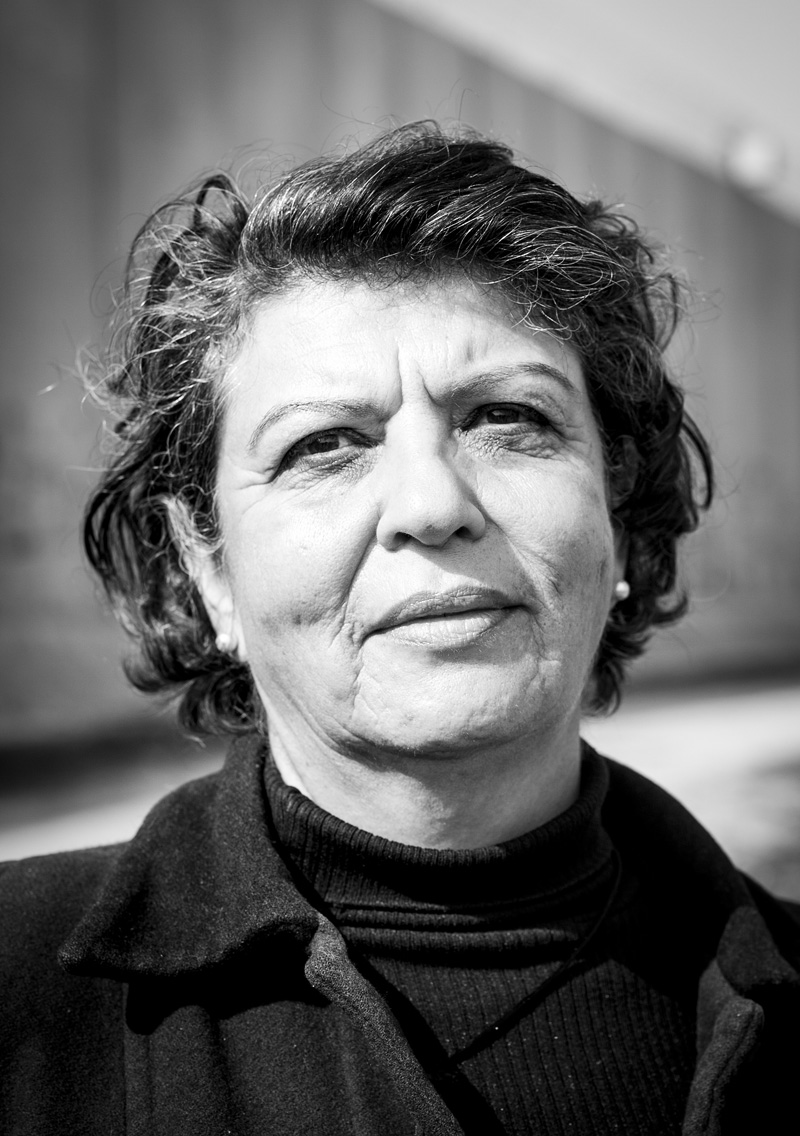 Life continues in the organized chaos of Qalqiliya, north of Jerusalem. A lot of traffic and a lot of people in the streets. It's against the Green Line that ends in the West Bank and starts in Israel. In 2002, it was the first city to be completely shut down by the wall. Surrounded by U-shaped, it has the only exit that controls a checkpoint. 50,000 people live in this huge prison.
Life continues in the organized chaos of Qalqiliya, north of Jerusalem. A lot of traffic and a lot of people in the streets. It's against the Green Line that ends in the West Bank and starts in Israel. In 2002, it was the first city to be completely shut down by the wall. Surrounded by U-shaped, it has the only exit that controls a checkpoint. 50,000 people live in this huge prison.
“Imagine that they build a wall between the people you love most in your life and you, with just one passage,” says Suhad Hashem, and that the Israeli military decides who can and cannot pass.” Like many Palestinians, he thinks that what is being built is not a security wall, but a new border that they want to see approved. It was built a few kilometers further east than the Green Line, leaving the area free on the land cultivated by the indigenous peasants for new settler settlements. Hashem is a woman who speaks serious and strong.
He has in his office a quadruple map of the evolution of Palestine. In 1922 you can see the territory painted in white, with some black dots; in 1948 a black field opened with the creation of the State of Israel; in 1967 it occupied three quarters of the map as an oil spot, with the Six-Day War, leaving the white part completely surrounded; and, finally, today, like the Gruyère cheese, the black dominates in front of a white space that gradually disintegrates.
5,610,000 Jews and 5,120,000 Palestinians live in historic Palestine. 5.3 million Palestinians in exile, according to UN data. In the meantime, Israel offers Jews from all over the world free of charge air tickets and nationality to travel to the country. On 6 February 2014, the construction of another 500 homes in Palestinian territory has been authorized. The Israeli Government makes the Palestinian population a policy that many international observers have defined as Apartheid.
The roads and walls linking the colonies show that Israel can reduce the flow of the West Bank by five minutes through the strategically established checkpoints at three points. Moreover, just as they have left out Gaza and the West Bank, the Palestinians see the risk that the West Bank will also cut in half by creating areas on the Palestinian lands that look like claws on the map. “In addition to stealing water and natural resources, they have de facto united the settlements with Israel, it is clear, on their roads they go to Israel peacefully to return to work at night.” With the help of the wall, the Israeli Government is entering the West Bank with the construction of settlements.
Israel has built 22 Jewish villages or settlements in the Qalqiliya district in the east of the Qatari capital. The theft of land reveals data on the official extension of the city. In 1947, the city of 27 square kilometers currently has 4.25 square kilometers. The Palestinians are increasingly concentrated, and more than 53,000 Jews live on the other side of the eight-metre wall. They are more than the Palestinians.
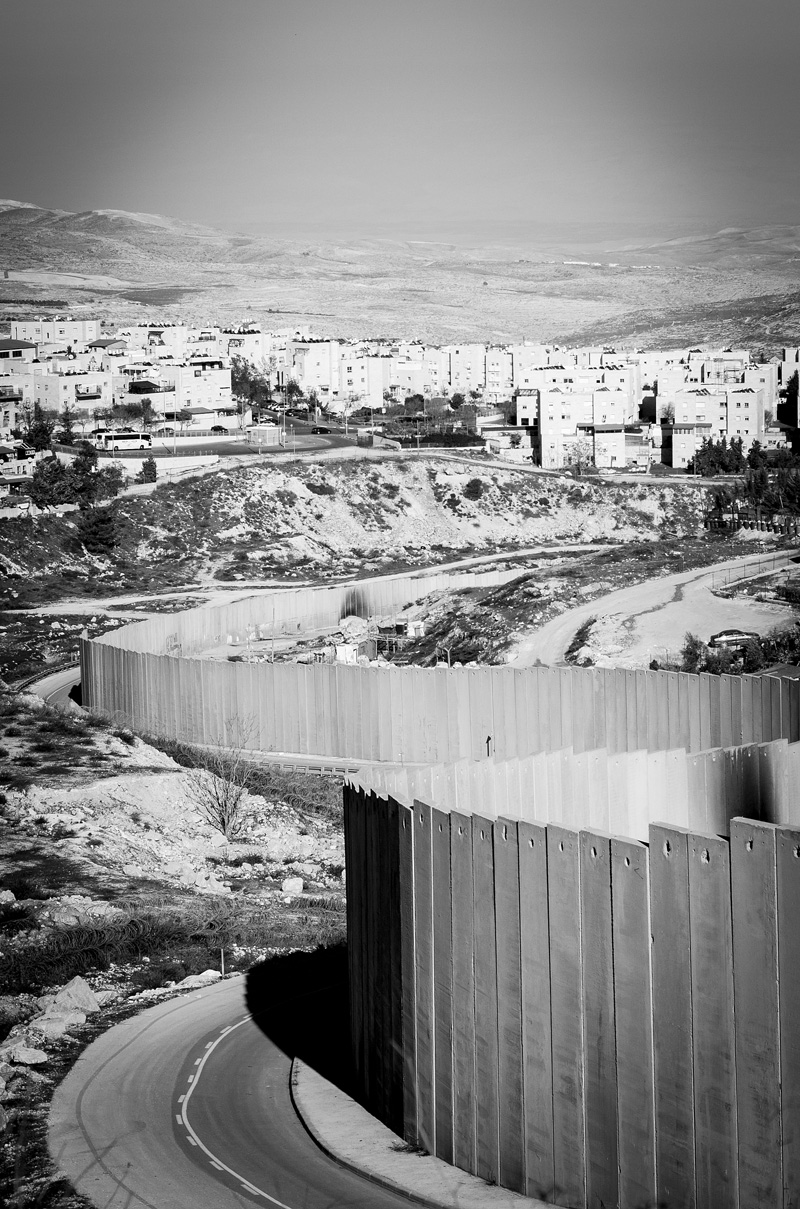 Occupation is criminal
Occupation is criminal
What drawings will the thousands of children who have to go through the Israeli Army checkpoint to go to school? How do you explain that thousands of Palestinians have a wall between their place of residence and the nearest hospital, often denying the passage to ambulances? What will people in the kitchen talk about when they destroy the groundwater extraction infrastructures in their own eyes and sell their own water? What will the boys and girls who answer the question “Where were you born?” feel at the chekcpoint in Qalandia? And the mothers who lost their child there, how will they define the word violence? According to data provided by the Palestinian Authority, 31 Palestinians were born in military checkpoints between 2000 and 2005. 37 months.
“The lack of safe and clean water for Palestinians living in the Occupied Territories is a serious problem,” says the report published by Amnesty International. He also points out that the practices being carried out by Israel discriminate against the Palestinians and the Palestinians. “The difference in access to water is very evident. Palestinian consumption is on average 70 litres per person per day, below the 100 litres per day that the World Health Organization considers necessary for a dignified life. There are families that don't reach 20. The average number of Israelis living in the Gaza colonies is 300 litres per litre.
In 2004, the International Court of Justice held that the wall that Israel is building is illegal and that, in addition to bringing it down, it must be compensated by the Palestinians. This highest judicial body of the United Nations dictates consultative decisions on the basis of international law. Tel Aviv's "security wall" began in September 2000, claiming it was essential to stop the attacks of the second Intifada. This is an excuse for many who live inside and outside the cement fences. The popular uprising ended in 2005 and since then, year after year, gray concrete increasingly closes more people. He's already doubled the length he had at the time he was ordered to stop. Of the total of 800 kilometers, 450 are built. The rest is fenced with barbed wire.
“Listen, I have to go to work, I’ve been here for three hours at the time of opening the door, and although I have the passport of the EE.UU, today I’ve been told that they don’t let me pass.” The journalist who signs the article has been left without knowing what to answer, while twenty citizens wait in the queue upon their arrival at the White House. In silence, in the sun. He has been muttering “every day the same”.
“The goal is to show the Palestinians that they control the situation, that they can condition it as we put our day to day at the tip of their nose,” said Suhad Hashem, quoted above. Israel has established over 500 checkpoints in the West Bank and international law says the State of Israel is violating the fundamental human rights of the Palestinians.
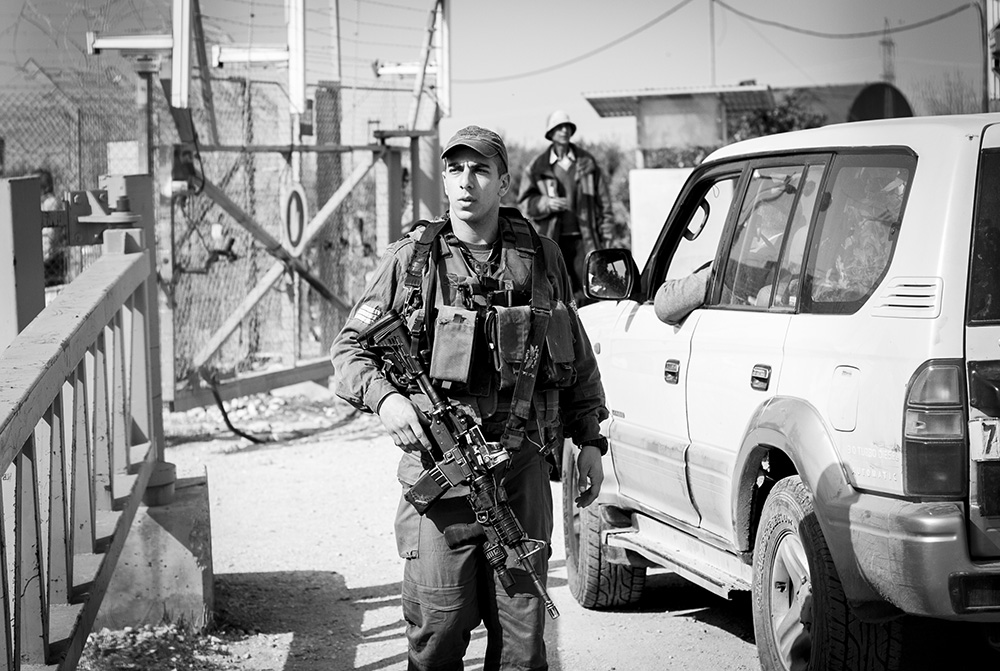
South Africa in racist memory
In the West Bank, a completely separate road system has been built, which has been completely intercepted. The colour of the car license plate indicates where they can travel. If the plate is yellow, it means mainly Jewish, so it will circulate on the new roads built exclusively for them. If the metal document of the car is green, it will not be able to enter it and will have to circulate in the second category, conditioned entirely by the walls. Many times they will have to take reckless turns to bring together two places that seem to be near the map, and other times the two roads will go ahead, but without seeing the wall through. More and more voices are saying that Israel is very much like the Government of Apartheid in southern South Africa. An example of this is the half-page opinion of the New York Times “How Israel is Losing the War of Propaganda” on 1 February. Israeli writer Hirsh Goodman warns Netanyahu's government among the lines: Look after the forms, Apartheid behaves like a government, and have you not noticed that that is going to be against you?
In this dry land bathed by the Mediterranean Sea, on plots of olive trees and vineyards, in hills, the traveler will easily identify thousands of white houses. Triangular in shape, most homes have red roofs in two waters. They are the houses of the settlers, towns of Jews from all over the world. For its part, the Palestinian houses will be separated by the black drum to store water on the plain roof, so that the water will fall under pressure. Almost all Palestinian peoples have colonies by their side, in front of each other, or in their vicinity. For the Jews, they are towns and cities built from scratch. There will be no lack of flags with the blue star of David, nor private security to watch over the peoples.

In the book The Wrong Jew published by the txalaparta, journalist Alberto Pradilla performs a nice X-ray of these settlers. It indicates that it is a heterogeneous group. “Only those known as ideological settlers have decided with conviction to go to the settlements, arguing that God gave this land to the Jews.” Very effective at the political level, minority in figures. Pradilla pointed out that most of the people who have left to live in settlements have left for economic reasons to obtain cheaper housing, although that does not mean that they are opposed to colonization. In recent years, settlers have ended up challenging their government, adopting extreme positions and becoming the main obstacle to peace negotiations.
A few years ago, a settler turned to a Palestinian owner of a vineyard and told him that he wanted to buy a tree from his department, which was his own. The Palestinian, surprised by the situation, made a deal with the buyer. They chose their tree. The next day, the new owner closed the tree with a metal barrier of thorns. The wounded tree can be seen by the road from Jerusalem to Hebron.
Palestinian peasants have been attacked by settlers who have descended from the mountain while working on their olive plantations. On YouTube, looking for raw words like "Settlers attack palestinian", 27,300 video videos of the film will be proposed to the viewer. These include olive trees rooted in the roots or cut in half during the night. In the film 5 Broken Cameras, which was close to winning the award for the best documentary in the Oscars, you can see how the settlers set fire to the olive section.
The knot of the refugees
About half a hundred people have gathered at the local frio that Alternative Information Center has in Bethlehem to watch the documentary My homeland and and and me on the subject of exiles. It is a work recorded by two young people living in the refugee camp with their own mobile phones. In addition to making personal stories known, the message has been clearly conveyed: the citizens living in these places have the right of return fully internalized, as the UN and other international organisations say. Although they have never seen their people of origin, they transmit from generation to generation what their origin is and that their current residence is an interim station.
“At home we tell the story, and the main difference with the Israelis is that we believe in this land, because we are from here.” The most difficult issue is that of exiles. For 66 years, millions of Palestinians have been banned from returning to the abandoned peoples, believing that they were left for some time. According to data provided by the United Nations, public debate shows the frustration that one third of the world ' s refugees are Palestinians. One of them has pointed out that the refugees made a mistake: to leave tents and start building houses “normalizing the situation”. “I am a refugee and I believe in the right to return, with the same certainty that I know I am seeing you now,” the other replied. The audience applauds.
“The old will die and the young will forget it,” the words of Israel’s Prime Minister, David Ben-Gurion, are well remembered by the Palestinians. This is not happening, memory has not lost strength. They enthusiastically proclaim the right of the Palestinians to return home, which the UN repeats in its annual reports: After the creation of Israel in 1948, the exiles and their successors, six million citizens, have the right to return to their countries. They must also compensate them. In the documentary just designed, the five-year-old says: “I want to fulfill my family dream and return to our country.”
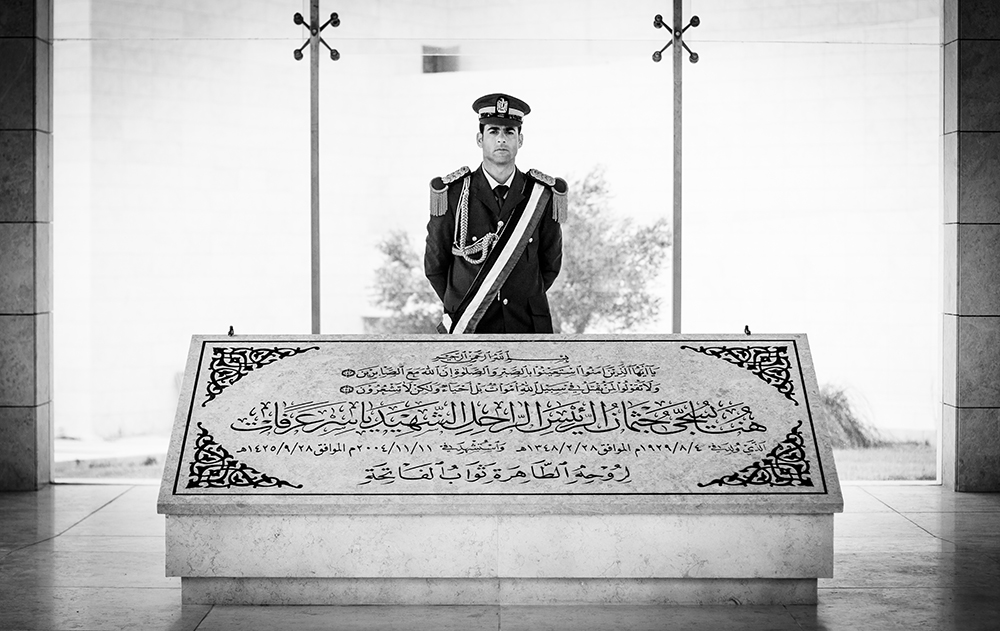
In the fight for return
“We will never lose rights as long as we have people fighting for them.” Fayez Arafat is not just anybody in the Balata refugee camp. With 25,000 people, it's the largest in the West Bank. The person who makes translations of Arabic tells us that it is “the original arafat”, in medium jokes. She's from Jaffa, like her parents and her children, although she's never been there.
 “In Jordan, as refugees are invited in Syria, we are invited from the Palestinian Authority within Palestine.” Balata was officially founded in 1952 on the outskirts of the city of Nablus. Above the door of the meeting room you can see a photograph of the hour. In a deserted area you can see sixteen rows of ten campsites, while a man walks in front of a camel. The UN rented a square kilometre to bring together Palestinian citizens who had been dispersed in the desert and in extreme poverty. There are 27 refugee camps in Palestine. Some have already been meeting with the cities in the area.
“In Jordan, as refugees are invited in Syria, we are invited from the Palestinian Authority within Palestine.” Balata was officially founded in 1952 on the outskirts of the city of Nablus. Above the door of the meeting room you can see a photograph of the hour. In a deserted area you can see sixteen rows of ten campsites, while a man walks in front of a camel. The UN rented a square kilometre to bring together Palestinian citizens who had been dispersed in the desert and in extreme poverty. There are 27 refugee camps in Palestine. Some have already been meeting with the cities in the area.
Balata has the wounds in sight. In buildings, the bullets markings left by heavy Israeli artillery are the most visible. The most difficult injuries are found within the population. According to official data, in the second Intifada, the Israeli army killed 70 people in Nablus and arrested hundreds of people.
In the narrow streets where children play, poverty is over 60%. There's a dentist, a doctor and a surgeon for about 25,000 people. There are between 40 and 45 children in classrooms, and there are many social problems.
The UNRWA, established by the UN for Palestinian refugees, is responsible for providing basic services to these six million Palestinian citizens. But Arafat is convinced that they are gradually washing their hands. For this reason, a group of citizens works to maintain decent living conditions at the Yafa Cultural Center in Bilbao. Regardless of whether Israel recognises the right of return, as citizens need schools, hospitals, libraries, etc.
“The conflict started with the refugees and will not end until this is resolved,” he tells us. After the interview, we conducted a photo shoot. To show it he has taken a key with his symbol of the wardrobe where the beautiful tesoros.Guarda are stored old glasses, bowls, wooden boxes, and property documents, locked, in the safe. When the Israeli army bombed the surroundings of Nablus in 2002, they were the first things that instinctively saved them before they were sheltered. They are the archaeological remains of the lost lands, the dream and the right of a life that they want to rebuild.
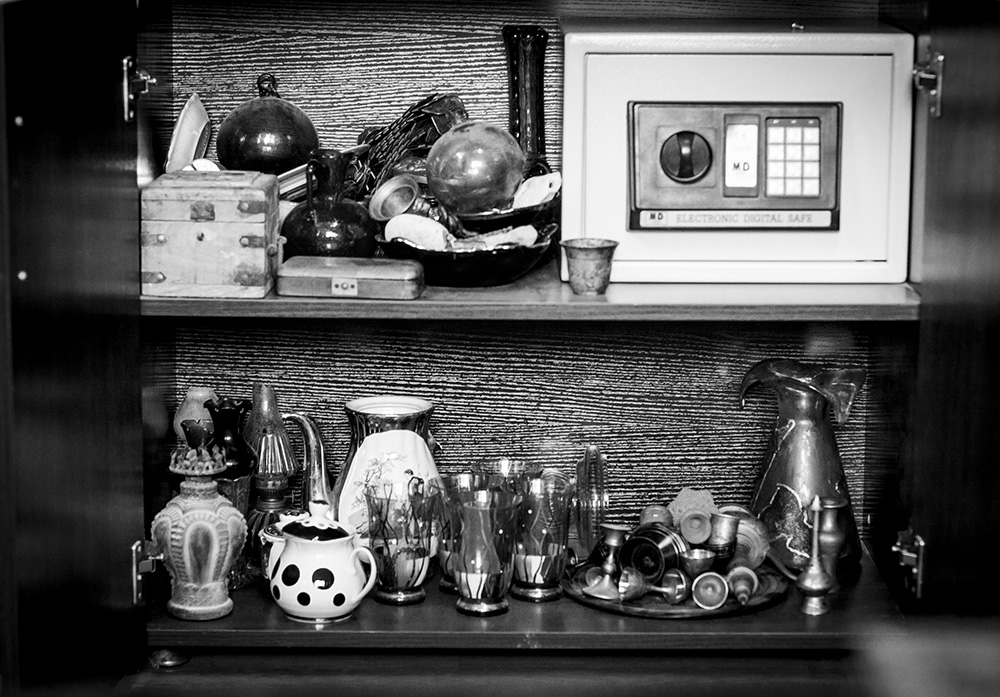
The pain of prisoners
In the Balata refugee centre there are 430 prisoners dispersed by Israeli jails, according to the NGO. Parliamentarians, teachers, students, trade unionists, fishermen, members of armed groups, politicians, farmers, children -- the picture of Palestinian political prisoners has many faces. “The goal is not security, but to punish civil society. What has the 12-year-old girl done to be arrested?” says Mourda Jadallah. Addameer is a member of the Organization for the Protection of Prisoners and Human Rights.
It's been an hour of data collection. A total of 5,028 Palestinian political prisoners are in Israeli jails when writing this report. With the permission of the law, they are treated entirely differently from ordinary Israeli prisoners. Arabs are “prisoners of security.” A Palestinian may be incommunicado four days before the trial; if he is a settler, the law provides that he shall be brought to trial within 24 hours. It is customary to read the testimonies of Palestinian prisoners who still today report torture to their family and friends. It is not easy to find cases of torture in Jews. A Palestinian will be arrested on a voluntary basis, day or night, and will be dragged out. The note comes to his house indicating to the Jew that he has to go to jail. Women have been raped in prisons, the Israeli police could arrest children from the age of 12. The youngest Jew in the Netherlands will be 16 years old and the minimum age will be 16 years old. They face 20 years in jail for throwing stones. Children have told their parents, among other things, that jailers have prayed to them. You can write books with the humiliation lists that you have documented.
The activist has taken a photocopy of his policy of dispersion. The prisoners are dispersed in prisons near the Mediterranean Sea, at the farthest points in the West Bank.
Since the end of the second Intifada, there have been 4,000 arrests a year, and 800,000 Palestinians have been arrested since 1967. The longest serving prisoner has marked the year 32 on the prison calendar.
Marwan Barghouti's most well-known face of eta prisoners. In prison since 2002, polls show that 60 percent of Palestinians would choose him as a leader, ahead of the leaders of Fatah and Hamas. On the outskirts of Ramallah they have made a gigantic drawing with wives on the wall, making the symbol of victory.
These activists working for the rights of Palestinian prisoners denounce that the Palestinian Authority created after the Oslo Accords is often doing dirty work to the Israeli police, the NGO has reported. Claiming that it has to comply with the law, the Palestinian police stops the Palestinians from handing it over to Israel.
Resistance to East Jerusalem
“We define countries whose economy is fully intervened from abroad as third world countries, and so is East Jerusalem.” Yahav Zohar is a 33-year-old Israeli citizen living on the Côte d'Azur. It is a left-wing militant fighting for the rights of the Palestinians and the Palestinians. It is a former member of the Israeli Committee against Domestic Derribes, who is in free time to take international observers to the Palestinian neighbourhoods of Jerusalem.
The city that the Palestinians and the Israelis proclaim as their capital is completely divided. The Palestinians live in eastern Jerusalem, separated by walls, in many streets without sidewalks, without parks and without drains to channel the dirty waters of the houses. Very different from the brilliant memory that millions of tourists a year carry from the city. Garbage is accumulating on both sides of the road.
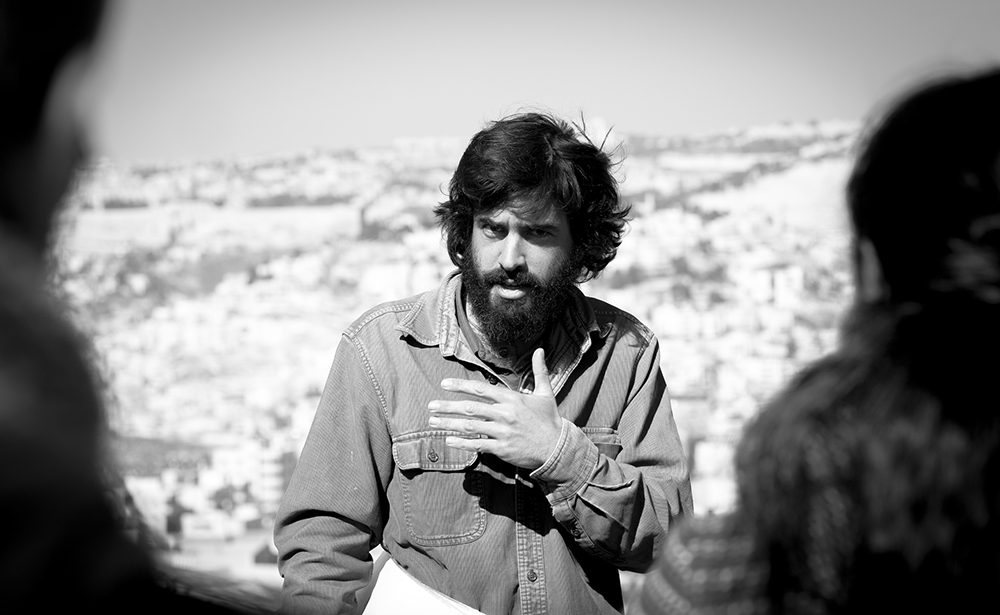
Palestinians living in the east must demonstrate that Jerusalem is the “centre of their life”. According to this ambiguous evidence, identity documents will be retained or withdrawn from the city. If they don't live there, they can't be, leaving their homes confiscated. Zohar is against this policy.
Neighbours feel that they want to get them out of there, resorting to the essence of the Palestinian conflict. Here too, existing is resisting. A Palestinian living near Jerusalem cannot go to the city, not even visit it, if he does not have permission to do so.
The new building is prohibited, and obtaining permits is a lengthy process of several years for the neighbors, according to Zohar. The population is increasing and it is estimated that, in the absence of concrete statistics, about 300,000 people will live, growing year by year among the walls of the city.
Demolished families
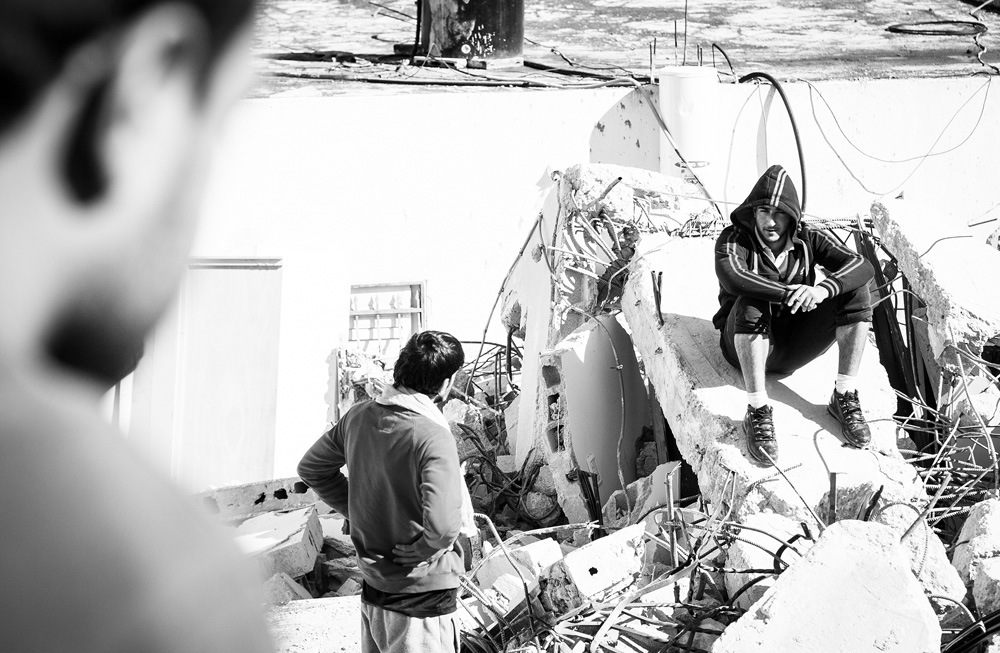
5 February. Noon. The neighbourhood has been wounded by Israeli bulldozers in eastern Jerusalem, in that Palestinian neighbourhood. “We don’t know where we will sleep today.” An hour ago, the Israeli military destroyed the house of nine people, leaving four adults and five homeless children in the area. It was at noon, five minutes after the arrival of the bulldozer, without giving them time to take out anything, they have torn everything apart. Down's father, who protects his son with his arm leaning on his shoulder, is out of sight. In the presence of excavators, the neighbours have made themselves available to the machines while throwing stones from the vicinity. They've torn down the tear gas and they've torn down the house. “We are in the hands of God.”
“The goal is not the family, the family has already done so, the goal is for the neighborhood to be scared.” Some have made one more room to the house, others on top of another room, others out of the bathroom. Buildings made without permission are punished by Israel with the demolition of the whole house, and proceedings have now been initiated against 10,000 houses. However, Zohar has an estimated annual demolition of between 50 and 60 meters, enough to frighten families who are in bankruptcy, but insufficient to provoke another popular uprising. Derribes are always done in full daylight.
“If you stand out in politics or in popular movements, you know what you’re playing with, you or any of your family members.” To end the occupation, there is no hope in Israeli society. “The Israeli system is very effective and works to get citizens to think politics is a boring thing.” In his words, the human rights of the Palestinians are far from the daily concerns of the Israelis. Initiatives will come from the international community to put pressure on the Government and to take action.
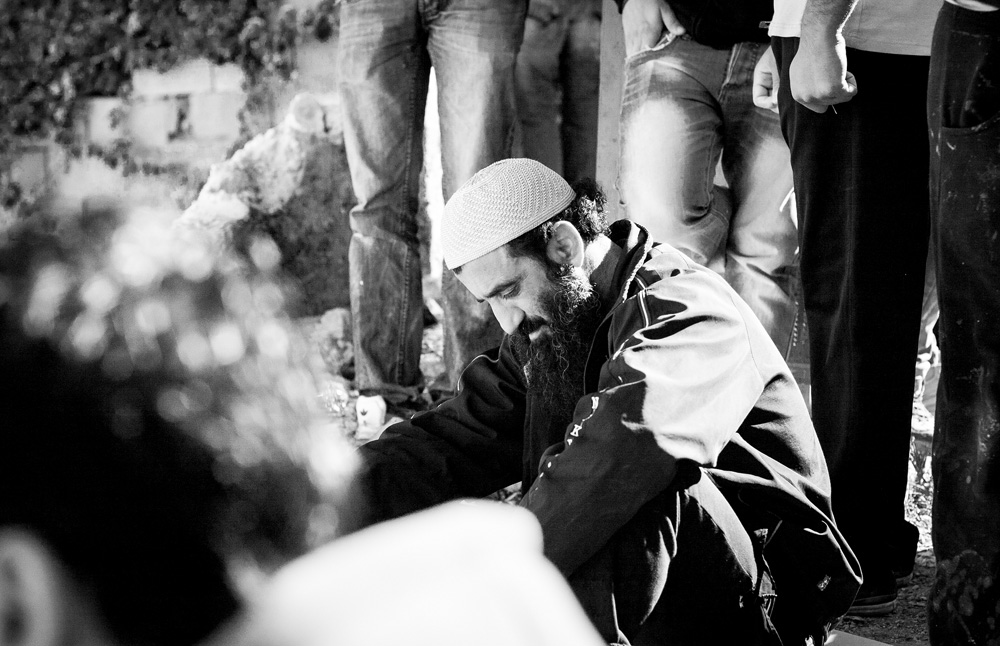
Palestinian feminist struggle
The Palestinian population is a patriarchal society. It is clear to Soraida Hussein, a member of the Technical Committee on Women. Born in Colombian exile and back to Ramallah at seven years old, she has been working for decades on behalf of women’s rights. Stresses the seriousness of the situation: “Although we don’t have official data, in a family in which the house has been torn down, the tendencies of the men of the house to hit the woman increase considerably.”
Historians have concluded that in Palestine women have been organized since 1928. Since 1952 they have participated in the war as helpers, carrying weapons from one side to the other or serving the wounded. In the armed struggle, the first female entrepreneurs can be found since 1967. Hussein recalls that women played a fundamental role in being organized in the first Intifada through popular assemblies. He was about 18 years old, and that's when he joined the resistance. He says that in the villages that organized the health and education of the citizens, they were the ones who led the leadership of many houses. From that moment on, women are building a nation in defense of their rights.
“Prisons are not only physical, but also mental.” It sets Gaza as an example, in which it calls for it to be put in the place of the thousands of people who are born and die there. “They have never stood outside those imposed limits. They have been bombed, in addition to being in a physical jail, they are in a mental jail.” They have nothing to do with women from abroad, they know hardly any other way of understanding the world.
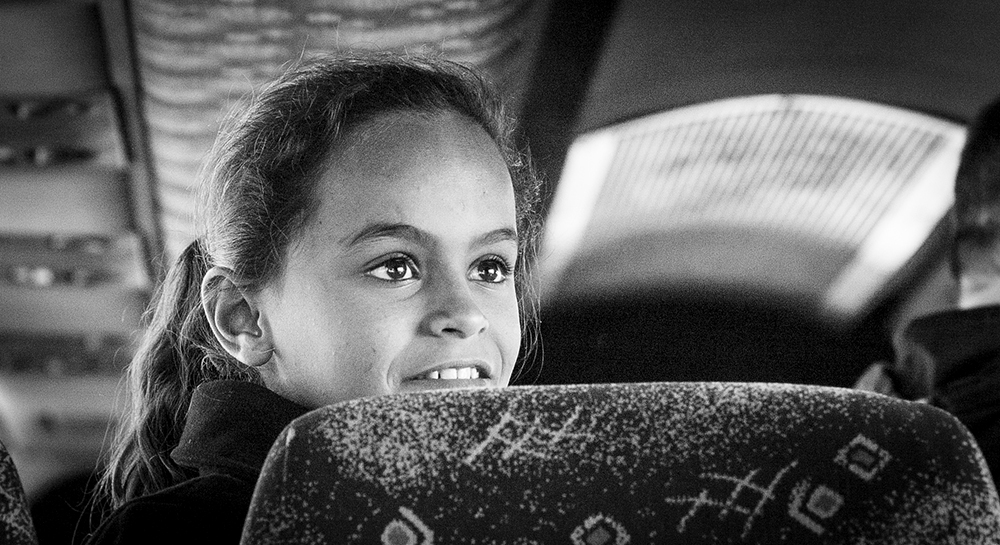
So far, he has been pleased with the new technologies, because they have realised that Palestinian women who make a Facebook account find freedom on the net. To this end, computer rooms have been set up in Ramallah and Gaza for the exclusive use of women. “We are opening windows to the world.”
“The tank not only wants to break the house and the tree, but to break oneself inside.” He says that great steps have been taken since the beginning of the feminist struggle, although with the repression of the second Intifada the citizens were made to believe that they are absolutely fragile, why fight for women’s rights if no one has the right? In his words, everything should start from scratch. In recent years, the institutions have managed to reach a consensus on a national document against male violence and a protocol to treat the abused woman, among other measures.
The resistance has thousands of faces.
Palestinian resistance is not new. They stood up 100 years ago against the British. “With the armed struggle Israel was very comfortable, because they are professional killers, equipped with incredible weaponry, and we are citizens with very limited resources.” Fathy Khdirat, whom we referred to at the beginning of the report and who coordinates the Palestinian camps, denounces the propaganda use of the area. He says that he is used to call the Palestinians terrorists before the world.
Members of the Leftist Palestinian FDLP movement have stressed that the civilian population is "constructively" raising civil disobedience in the face of gender-based violence. They do not want to give names, for security reasons. "The negotiations are not going to solve the situation. The Israeli propaganda says that they have an approach to do nothing, but that goes nowhere. The only alternative is popular resistance.” They say that the atmosphere is getting warmer, that more and more people
are willing to resist, “and in a moment, when something happens, the people will rise again.” He says they don’t give up arms, “but this is something else, something that people can do.”
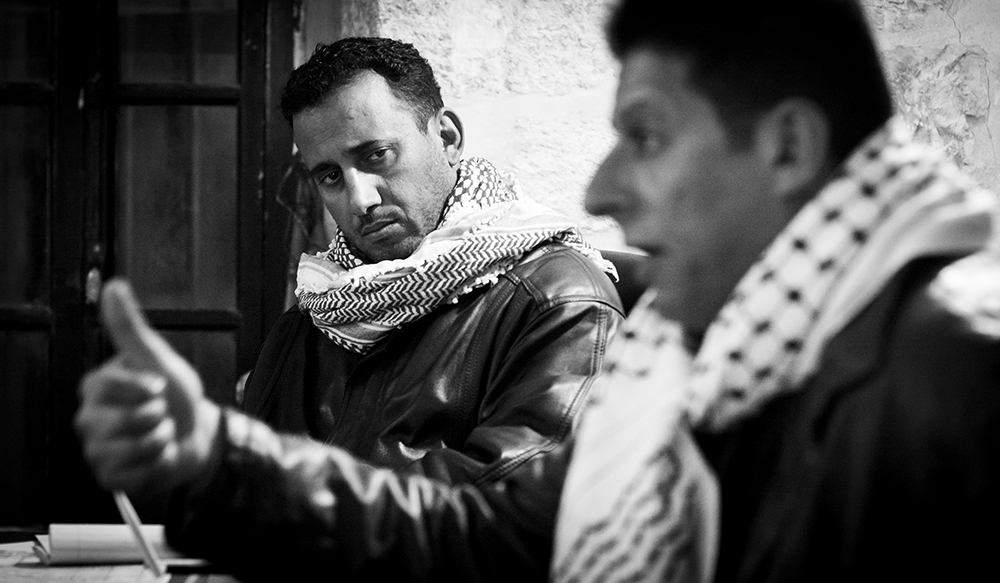
But resistance is priced. That is the case throughout the world, and Palestine is no exception. According to data collected by the AIC, 40 people have died in peaceful actions, hundreds of wounded and thousands of detainees in recent decades.
The Palestinian Authority says it wants a controlled grass-roots resistance, but FDLP members believe that this is not going to happen. "We know that they have to do with the agreements that have been made with the Israelis, but we do not. The people are not the Palestinian Authority. People want more.” They believe that when the movement gains strength it will not be able to stop.
“We’ve done all kinds of anti-occupation actions,” says Stop the Wall, a member of the movement: Demonstrations of places under construction, colonies and roads built for the Israelis; 15 peoples seek every Friday confrontation with soldiers in the complex; peaceful occupation of confiscated lands; actions against the wall, barricades and attacks; car caravans with Palestinian flags on segregated roads, occupations of supermarkets of settlers...
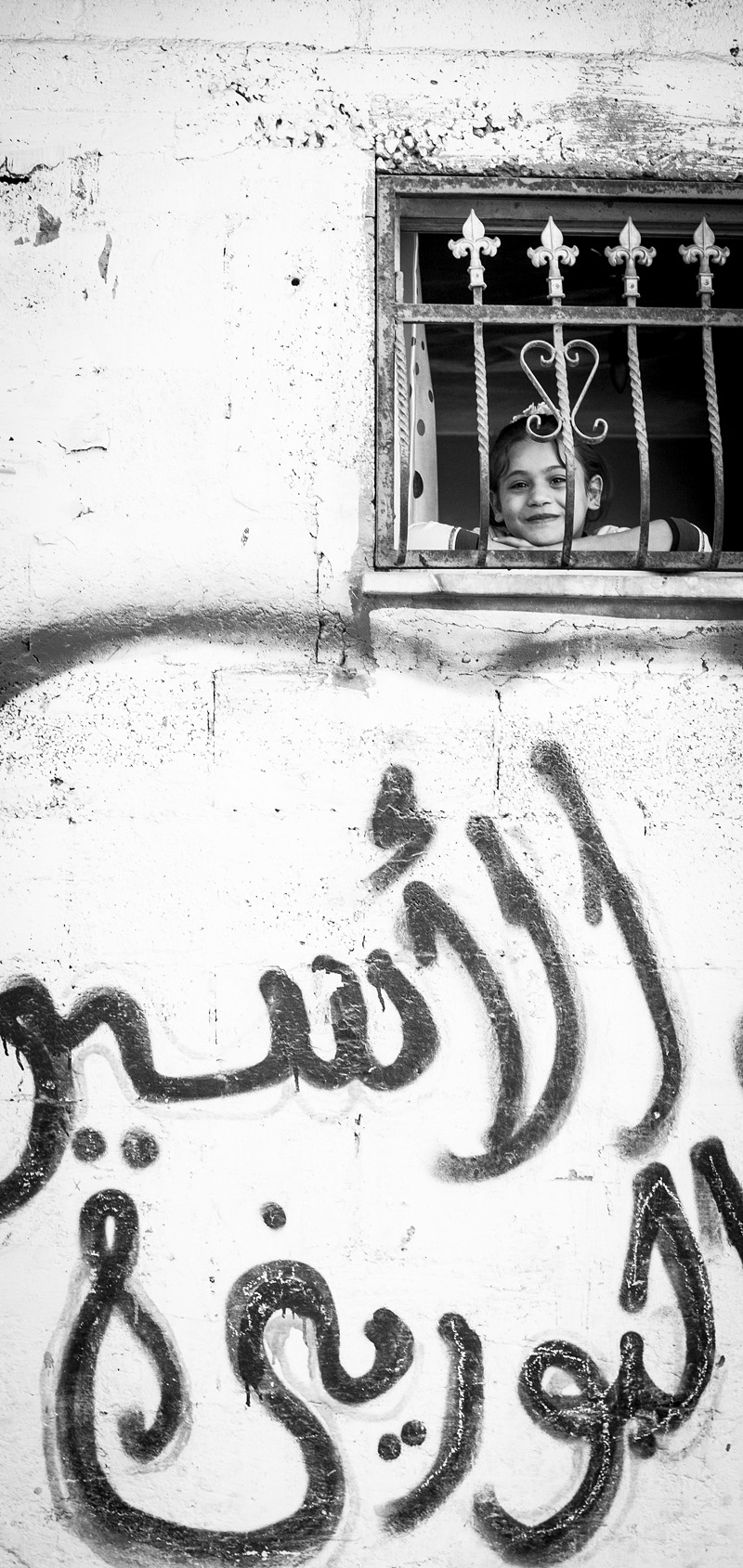 Looking to the future, consideration is being given to how to increase the occupant ' s activity economically. By taking action against the wall, technology is expected to become more expensive, with cameras, power barriers and more soldiers caring for them. “The more Israel needs to oppress us, the more we will let ourselves see that the money given to Israel is destined to violate our Human Rights, with the intention of making it unfeasible once.”
Looking to the future, consideration is being given to how to increase the occupant ' s activity economically. By taking action against the wall, technology is expected to become more expensive, with cameras, power barriers and more soldiers caring for them. “The more Israel needs to oppress us, the more we will let ourselves see that the money given to Israel is destined to violate our Human Rights, with the intention of making it unfeasible once.”
“We are no longer talking about a piece of land, what is at stake is dignity. This life is like this, and that's why we have to give ourselves love. The Israelis should lose this fight, because our lives are already a resistance. I will die, but the next generation will continue here.” The idea that Soraida Hussein has introduced into the DNA of many citizens.
Legality against occupation
“The laws are on our side,” says Hussein Ahmed. He is a member of Al Haq, an organization working in the field of international law. It was created by Palestinian lawyers to combat the occupation of Palestine through the universal application of international laws. They say they address all violations, “no matter where they come from.”
On the one hand, the Palestinian Authority has been brought to court, where it has been arrested. Asked in recent cases, they have stressed that six people were arrested for comments on Facebook, that the demonstration has been heavily dispersed by the Palestinian police and, above all, that no elections have been held since 2006. “However, our main struggle in this area is to ensure that our rights are respected in negotiations that can be signed on behalf of the Palestinians.”
On the other hand, they are opposed to the companies that are allowing the police to occupy Israel. To do so, they study the laws of each country and, on the basis of this legal argument, the corresponding trials are carried out. The ultimate goal has been a Dutch crane company that was doing business with the construction of the wall, according to the Dutch police. After three years in the courts, the case has been filed, but the lawyers are satisfied because the judge has stated the following: “If Dutch companies engage in war crimes, the Criminal Law will apply to them.” Since then, the “accomplices of the occupation” always tell them that they should take it into account.
When a firm can be brought to trial, the solidarity networks with Palestine in that country start campaigns to put the company at risk of discredit. “If we give them strong legal arguments, entrepreneurs in countries can more legitimately support boycott campaigns, denouncing that these companies violate the law.”
Israel has not crossed its arms and carried out operations against the members of this group, who have roundly denied their permanence. In addition, it is estimated that between EUR 12 million and EUR 14 million are intended to tackle the boycott campaigns and trials that are taking place at international level.
The decision of the European Union of 28 June 2013 to establish a Member State would involve the management and pressure tasks of the members of Al Haq. Grants, collaborations, scholarships and student awards and research to Israeli organizations located in Cisjjoradania and East Jerusalem are prohibited.
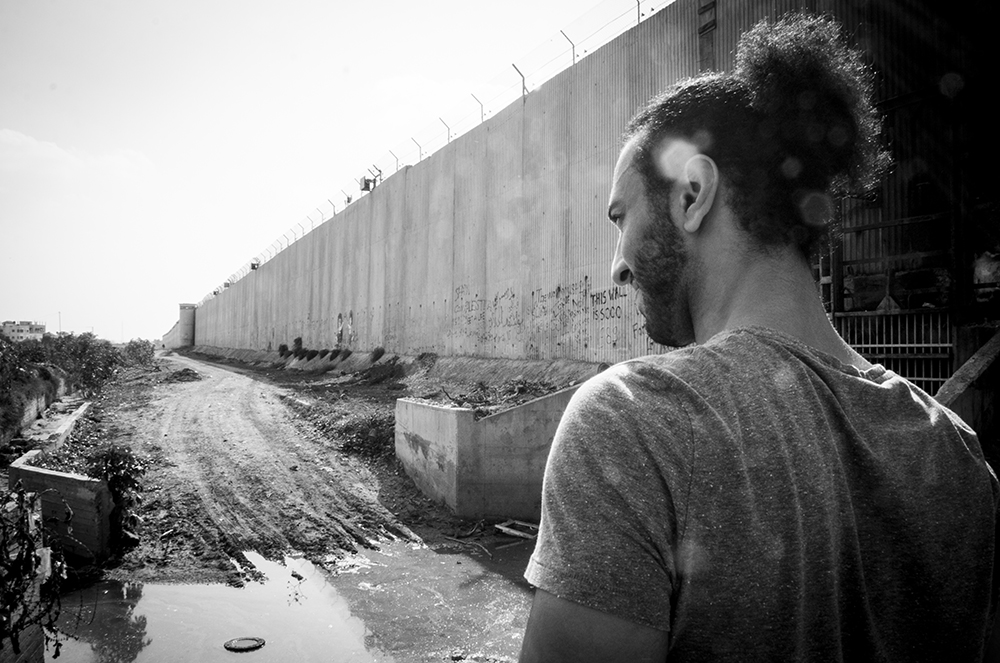
Hopefully in the boycott
In recent years the Palestinians have put their hope in a struggle that has been able to frighten Israel: Boycott, Divestment and Sanctions (BDS) campaign. This is a movement that has caused millions of euros of contract losses to Israeli companies around the world. Political parties, trade unions and grass-roots movements throughout the Palestinian territory began their work in 2005.
We have met Omar Barghouti in Ramallah, an internationally relevant figure. He was one of the drivers of the BDS campaign. The campaign has three demands: First, that Israel should end its occupation in Gaza and the West Bank. Secondly, respect for the rights of the Palestinians. And thirdly, the return of refugees. Until the three objectives are achieved, the campaign that grows as foam will not stop.
Because it's been successful. Some governments actively remind companies in their country that doing business with Israel can have consequences. The Netherlands or the United Kingdom are the two known countries. “We will get justice when we have rights,” they say. This is a campaign inspired by South Africa and was fundamental to the fall of the Apartheid government. They want to point out that this is the time for intervention.
To know the size of the boycott, just refer to the “Victories” section of the area BDSmovement.net. Diplomatic, academic, cultural, sporting, consumer, divestment and sanctions boycotts around the world are interrelated. Barghout is aware that they lead a movement that has the full potential to condition a state and smiles when watching the photos of Tau fans of Vitoria-Gasteiz against the Maccabi of Tel Aviv.
The first steps of the global boycott against Veolia were taken in Bilbao in 2007. It is the tramway manager linking the settlements in the West Bank and the waste from these areas, and they have declared that they want to leave the country after losing contracts for billions of euros in several cities.
The top five US universities announced in 2013 that they will conduct an academic boycott of Israel thanks to the work of the student movements. Several cities in the United Kingdom have been suspended from the GHS company, which manages Israeli jails and security in settler settlements. Many musicians refuse to play in Israel. The federation of the main trade unions in Africa, representing 15 million workers, has joined the BDS campaign. The Congress of the European Trade Unions is deciding on action against products produced in the illegal settlements in Israel.
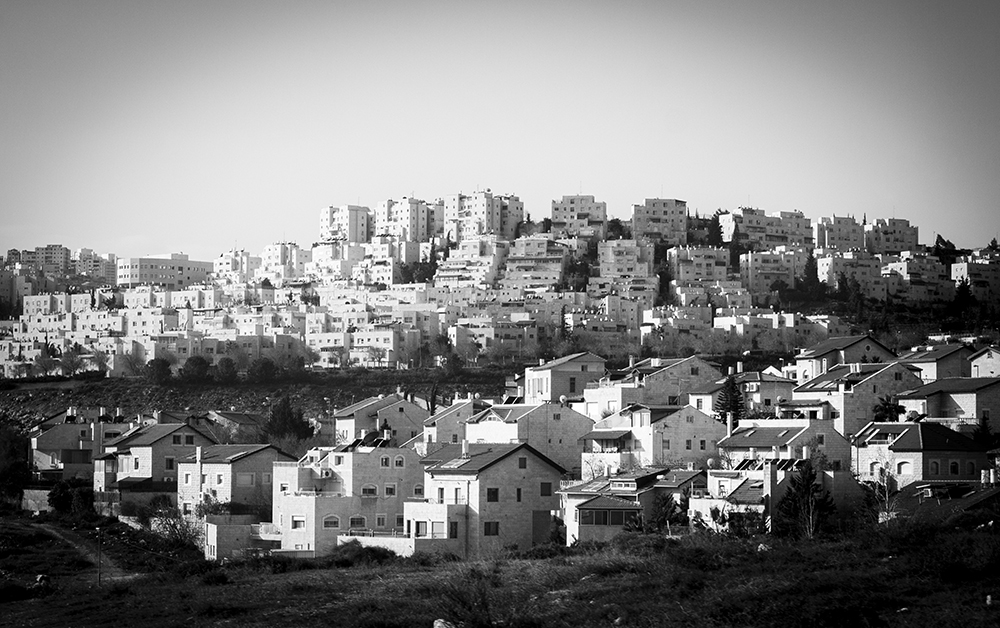
“We fight to win.” As a movement that has multiplied throughout the world, it is clear that each country has to adapt its struggle to its own reality. “For example, if you cut a concert by an Israeli musician, you don’t connect it to most people in the audience, we ask entrepreneur groups to put it differently.” To do so, they believe that imagination is key. "At the door of an Israeli musician's concert, leaflets were distributed with the singer's photo from the outside in a European capital. Those who went to the concert thought it was a program and once in the room, when they looked inside, they found pictures of the bombing of Gaza and data about the deaths of Israel.” In this regard, he recalled that, thanks to this action, some of the attendees left the concert.
They will continue to work on the triumph
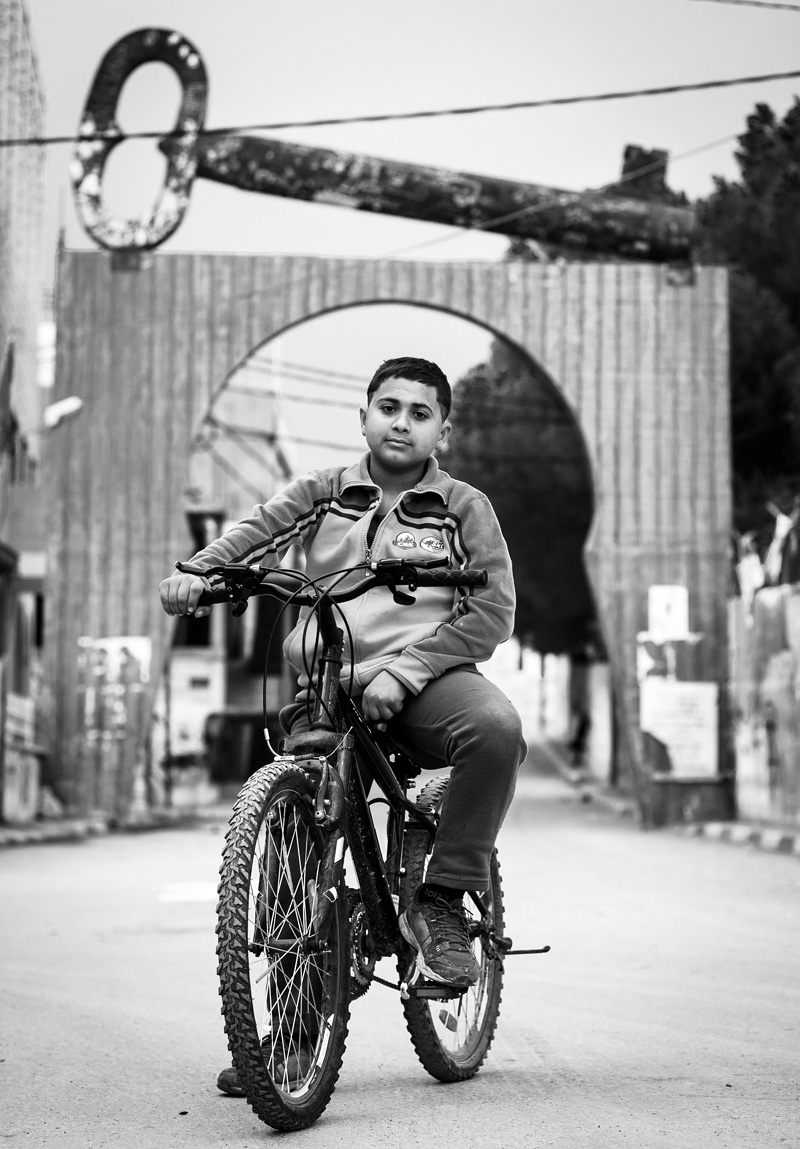 “When we enter lands controlled by Israel and set up camps, the military police comes to throw us out.” The police chief, with war-ready agents behind him, is looking for a photograph when, without armaments, he is going to shake hands with the protesters. On television it has been shown that the Palestinians do not want to shake hands with the Israelis or even the Palestinians. Fathy Khdirate reports that the Palestinians changed their strategy and that the Palestinians have been unable to do anything. Now, when the agent is accompanied by TV, “we don’t want to shake hands, but a hug,” he said, and all the protesters will embrace the police behind the agent.” Apparently, the police are not trained to respond to a "non-violent" resistance against the aggressor. It is now the Palestinian journalists who teach the world how the agents rewind in the face of the terror of the Palestinians.
“When we enter lands controlled by Israel and set up camps, the military police comes to throw us out.” The police chief, with war-ready agents behind him, is looking for a photograph when, without armaments, he is going to shake hands with the protesters. On television it has been shown that the Palestinians do not want to shake hands with the Israelis or even the Palestinians. Fathy Khdirate reports that the Palestinians changed their strategy and that the Palestinians have been unable to do anything. Now, when the agent is accompanied by TV, “we don’t want to shake hands, but a hug,” he said, and all the protesters will embrace the police behind the agent.” Apparently, the police are not trained to respond to a "non-violent" resistance against the aggressor. It is now the Palestinian journalists who teach the world how the agents rewind in the face of the terror of the Palestinians.
“Through armed struggle I see Israel as a lion, but using civil disobedience it looks like a balloon,” says a Palestinian FDLP activist. "All right, we will have to negotiate and also reach an agreement, but we cannot sit at the table without any force, we have on the other side a superpower, with a mediator who is from Israel. That is where justice will never come from.”
"For years, international entrepreneurs have seen us first and asked us what they can do for the Palestinians and the Palestinians. We now have the answer – says Omar Barghuti, one of the ideologues of the BDS campaign – to join the boycott campaign and move around. It has a direct influence on the Palestinians, because in the Israeli ministry they have knowledge of every boycott and they will see that they are staying alone in the world, with the need to change their attitude once”.
“I may never be able to return to my country – Fayez Arafat, a refugee rights activist, has started – but I am sure the next generations will do so.” A review of history to show that empires are not eternal. “Who would have said that the imperial UK 70 years ago was going to be like this today? Who said that the Soviet Union would fall? The United States Empire will fall with this racist Israel, and we will continue to fight for freedom.”
If the conflict is to be resolved, when other countries manage to get Israel to throw itself away, it will have to recognise this people's right to return home. The UN says so. Meanwhile, Balata is considering the possibility of making a museum with objects that the generation of the first refugees took from home. “He will be the first in Palestine,” Arafat says cheerfully, but we will have to do so at once, because we have to go home once.”
Since the beginning of the construction of the wall, the Israelis have destroyed some 200,000 olive trees in Palestine. However, many believe that one day there will also be justice. That's why, as years go by, checkpoints arrive, tunnels underneath the wall or pass over the ladder, every attack is used to educate children. In an area that has witnessed devastating suffering, thousands of olive outbreaks continue to be planted each year.
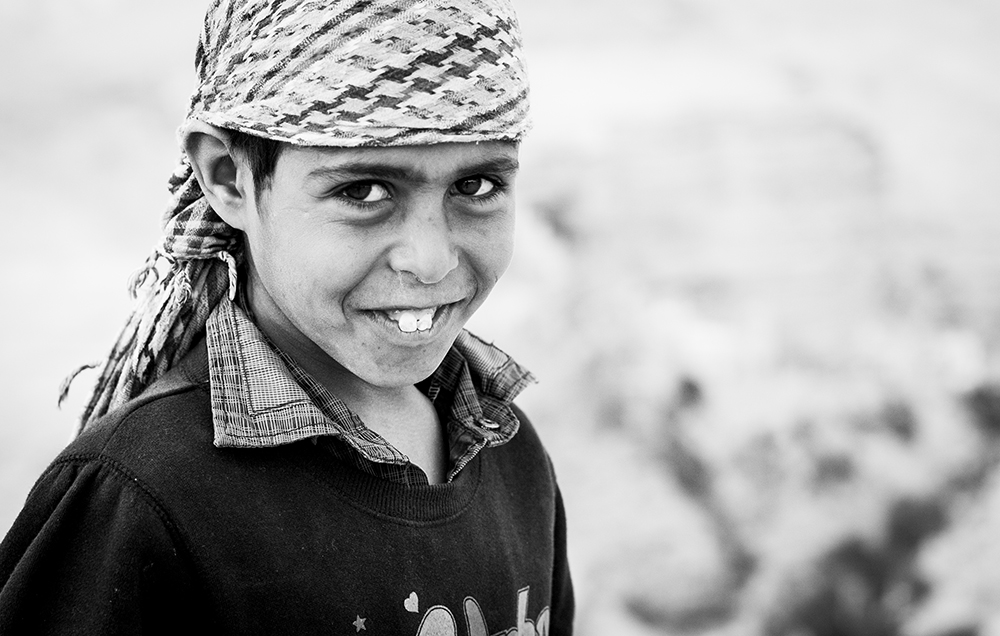
Dehumanization has penetrated deeply into the powers of the West, and they look with indifference to the holocaust that Gaza is suffering; in Gaza, if bombs do not kill you, you will die of hunger.
Now that our ship has been bombed it is a total impotence, we are well and we... [+]









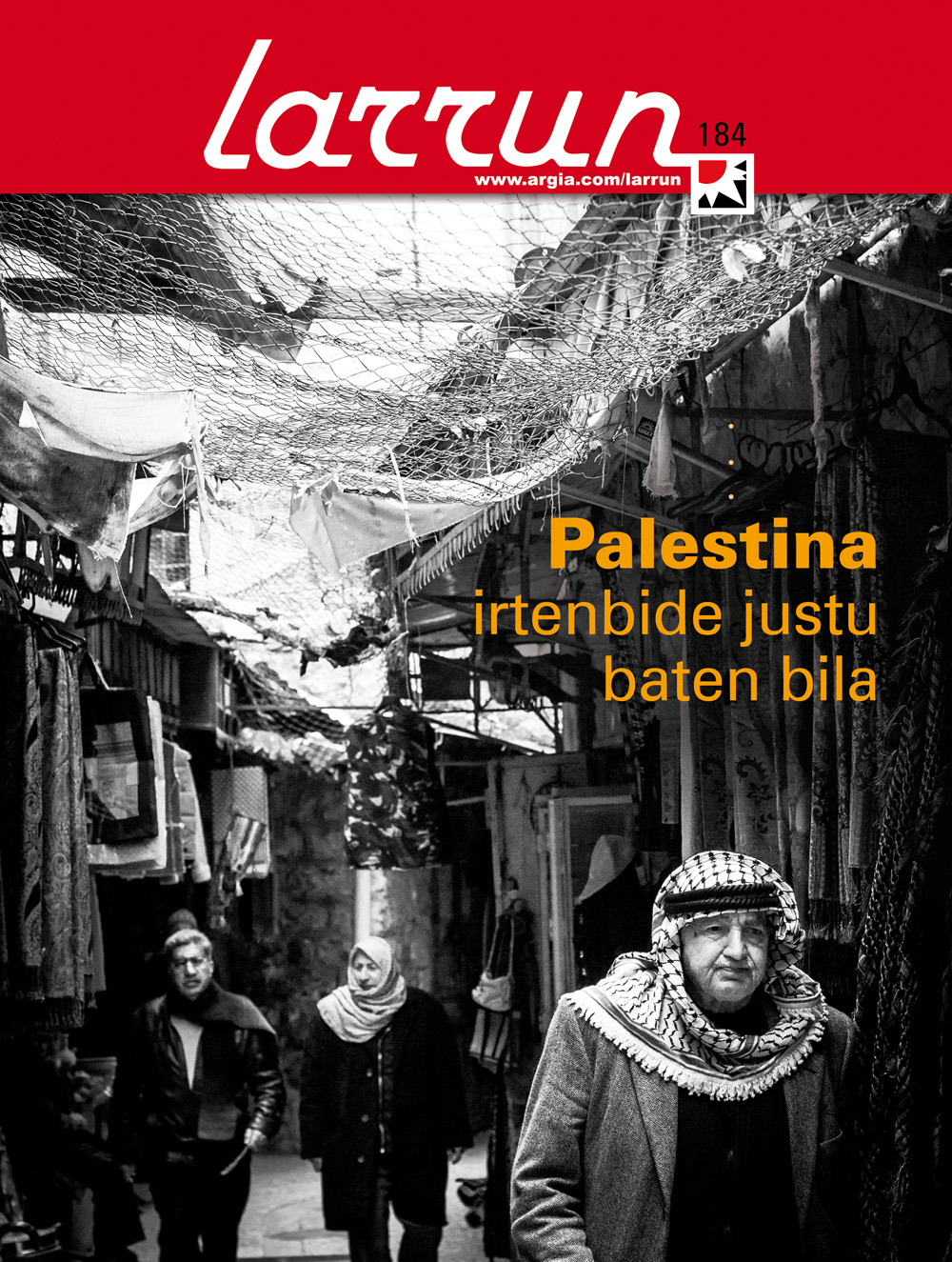


.jpg)
